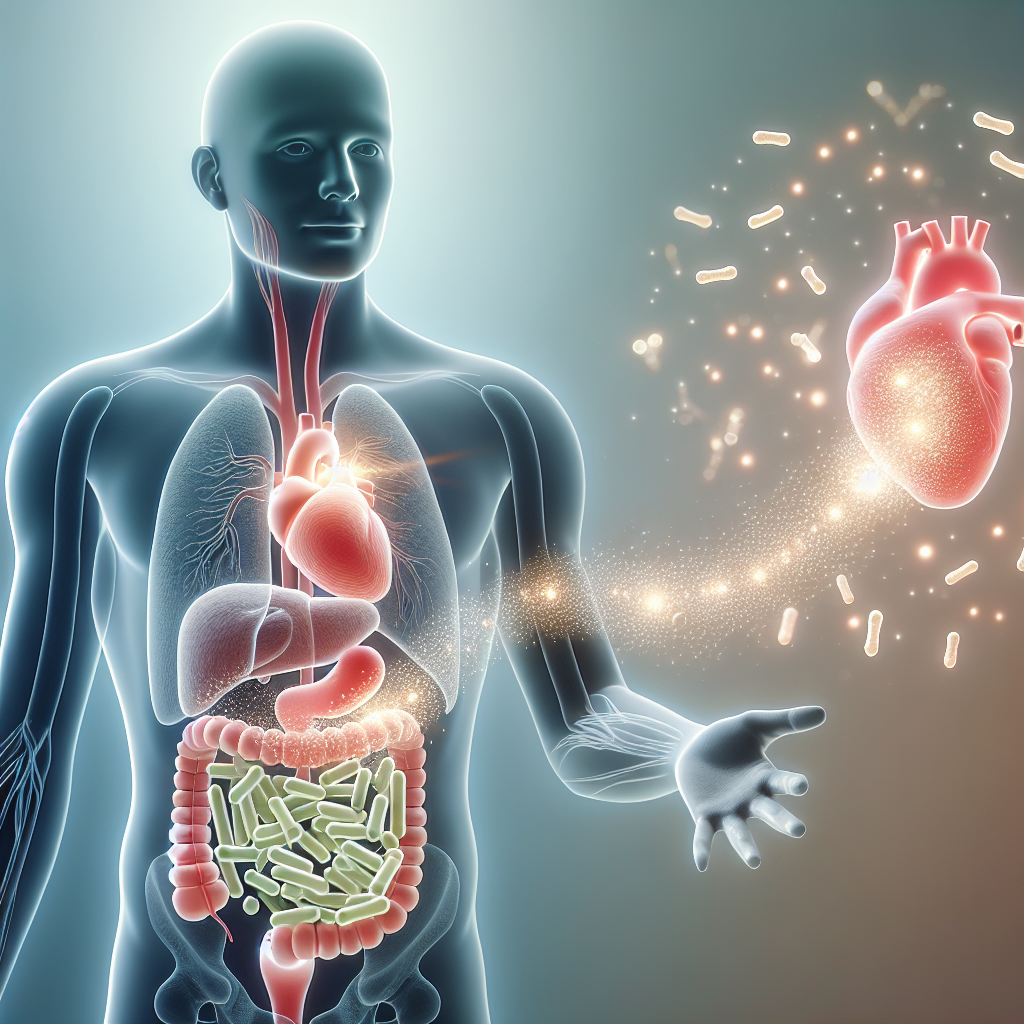Our body is an intricate machine where each system interconnects with another, functioning in harmony to sustain life. Among these connections, the link between the gut and the heart is one of the most fascinating and vital. Emerging research has continually underscored the profound impact of gut health on cardiovascular wellness. This article delves into the mechanisms behind this connection and offers insights into how nurturing our gut health can lead to a stronger, healthier heart.
Understanding the Gut-Heart Axis
The gut-heart axis refers to the bidirectional communication pathway that exists between the gastrointestinal tract and the cardiovascular system. This pathway is facilitated by a combination of microbial metabolites, inflammatory mediators, and neural communication networks. To maintain optimal cardiovascular health, the gut’s role is pivotal, as it influences systemic inflammation, cholesterol levels, and blood pressure regulation.
The Role of the Microbiome
Our gut is home to trillions of bacteria, collectively known as the microbiome. These microorganisms play a crucial role in digesting food, synthesizing vitamins, and fortifying the immune system. Furthermore, they are instrumental in the production of metabolites such as short-chain fatty acids (SCFAs), which have been shown to possess anti-inflammatory properties and promote cardiovascular health.
Inflammation and Cardiovascular Disease
Inflammation is a common thread linking numerous health conditions, including cardiovascular disease. The gut microbiota can trigger systemic inflammation when the balance of beneficial and harmful bacteria is disturbed—a condition known as dysbiosis. This imbalance can lead to the leakage of bacterial toxins into the bloodstream, inciting an immune response that contributes to the development of atherosclerosis, hypertension, and other cardiovascular conditions.
Link to Chronic Inflammation and Digestive Health: Risks and Remedies
Cholesterol Metabolism
The gut bacteria also influence cholesterol metabolism by assisting in the digestion of dietary fats and the regulation of cholesterol absorption in the intestines. Certain microbes can convert cholesterol into coprostanol, a non-absorbable substance excreted in feces, thereby lowering circulating cholesterol levels and reducing the risk of heart disease.
Blood Pressure Regulation
Hypertension is a major risk factor for heart disease. The microbiome’s production of SCFAs, particularly butyrate, has been associated with the regulation of blood pressure. These compounds can affect renal and vascular function, leading to improved blood pressure control.
Link to The Importance of Gut Health for Overall Wellbeing
Probiotics and Heart Health
Probiotics, the ‘good’ bacteria found in fermented foods and supplements, are known for their benefits to digestive health. However, their influence extends to the cardiovascular system as well. Probiotics can help reduce LDL cholesterol, lower blood pressure, and modulate the body’s immune response, all of which are beneficial for heart health.
External Resources:
- Heart.org – The American Heart Association provides comprehensive information on heart disease prevention and management.
- Gut Microbiota for Health – An expert resource detailing the latest research on the gut microbiota’s role in overall health, including cardiovascular wellness.
Dietary Fiber: A Link Between Gut and Heart
Dietary fiber is another key player in the gut-heart relationship. High-fiber diets are correlated with lower rates of heart disease. Fiber aids in the growth of beneficial gut bacteria, which in turn produce SCFAs, known to reduce inflammation and oxidative stress within the cardiovascular system.
Link to Connection Between High-Fiber Diets and Colon Health
External Resources:
- Whole Grains Council – Provides insights into the benefits of whole grains, which are a rich source of dietary fiber.
- NutritionFacts.org – Offers evidence-based information on how diet can impact health, including the role of fiber in cardiovascular disease prevention.
Lifestyle Factors That Support Gut and Heart Health
Lifestyle choices have a profound impact on both gut and cardiovascular health. Regular exercise, stress management, and adequate sleep are all essential for maintaining the balance of the gut microbiota and supporting heart health.
Exercise and the Microbiome
Physical activity has been shown to increase the diversity of the gut microbiome, which is associated with a lower risk of heart disease. Exercise also encourages the growth of bacteria that produce beneficial metabolites, contributing to improved cardiovascular health.
Stress and the Gut-Heart Connection
Chronic stress can disrupt the microbiome and increase gut permeability, leading to systemic inflammation and heightened cardiovascular risk. Stress management techniques such as mindfulness, meditation, and yoga can help maintain the integrity of the gut lining and reduce the impact of stress on heart health.
Sleep and Cardiovascular Wellness
Sleep plays a critical role in regulating the microbiome and ensuring the proper functioning of the immune system. Disrupted sleep patterns can lead to dysbiosis and increase the risk of cardiovascular disease.
External Resources:
- Sleep Foundation – Offers research and resources on how sleep affects overall health, including the heart.
- Anxiety and Depression Association of America – Provides resources on managing stress and anxiety, which can benefit gut and heart health.
Conclusion
The interplay between gut health and cardiovascular wellness is complex and multifaceted. By nurturing our gut microbiome through a balanced diet rich in fiber and probiotics, coupled with a healthy lifestyle, we can safeguard our heart. It is essential to recognize the importance of this connection and take proactive steps to support both our gut and heart health for overall well-being and longevity.
By understanding the underlying mechanisms and embracing a holistic approach to health, we can unlock the full potential of the gut-heart axis and pave the way for a healthier future.



